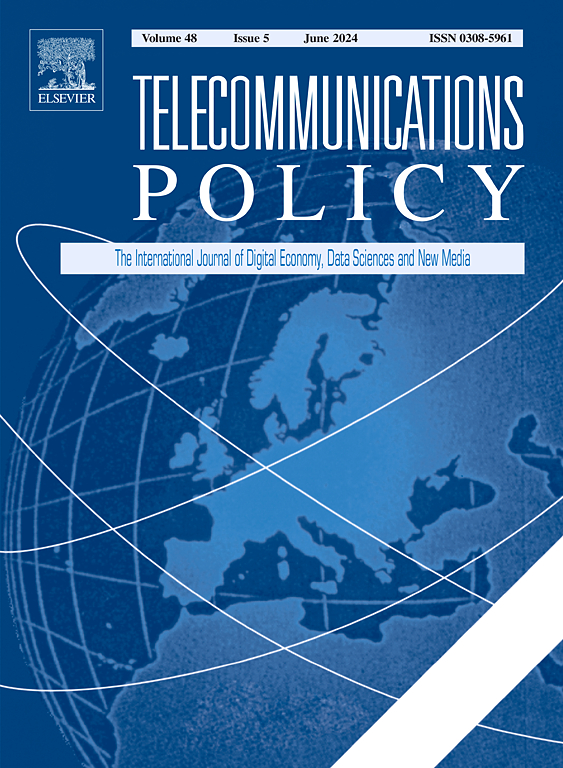A question of strategic legislation: Can the EU deal with cybersecurity issues in space?
IF 6.4
2区 管理学
Q1 COMMUNICATION
引用次数: 0
Abstract
This paper explores the impact of novel and forthcoming regulations on the European Union's (EU) strategic projection, focusing on space systems and their wide-ranging effects on services for European citizens and related industries. By examining space legislation and cybersecurity, this research provides an analytical perspective on whether the EU has implemented strategic regulations in shared competency, focusing on space and international security. While European Member States face the challenge of implementing national space strategies, the relevance of the EU extends beyond internal market and industry considerations, showcasing the Union's capabilities in implementing regulations defined in this study as ‘strategic’.
This paper aims to contribute to the academic discourse by bridging the gap between legislative studies and cybersecurity in space. The idea is to use the space domain, examine the intersection of space systems and cybersecurity and its unique challenges, and propose a new framework for evaluating EU regulations as instruments of strategic power. The relevance of these domains allows the authors to present the concept of strategic legislation and its relevance for the future of the domains studied in this paper. The EU's unique characteristics of shared competencies in a shared domain (i.e., space) offer unique perspectives on the Union's potential to lead in establishing international standards for space cybersecurity while presenting theoretical insights and practical recommendations for further research.

战略立法问题:欧盟能否应对太空网络安全问题?
本文探讨了新的和即将出台的法规对欧盟(EU)战略规划的影响,重点是空间系统及其对欧洲公民和相关行业服务的广泛影响。通过研究空间立法和网络安全,本研究提供了一个分析视角,以了解欧盟是否在共享能力方面实施了战略法规,重点关注空间和国际安全。虽然欧洲成员国面临执行国家空间战略的挑战,但欧盟的相关性超出了内部市场和工业考虑,显示了联盟在执行本研究中定义为“战略”的条例方面的能力。本文旨在通过弥合立法研究与空间网络安全之间的差距,为学术论述做出贡献。这个想法是利用空间领域,研究空间系统和网络安全的交集及其独特的挑战,并提出一个新的框架来评估欧盟法规作为战略力量的工具。这些领域的相关性使作者能够提出战略立法的概念及其与本文所研究领域的未来的相关性。欧盟在共享领域(即空间)共享能力的独特特征,为欧盟在建立空间网络安全国际标准方面的领导潜力提供了独特的视角,同时为进一步研究提供了理论见解和实践建议。
本文章由计算机程序翻译,如有差异,请以英文原文为准。
求助全文
约1分钟内获得全文
求助全文
来源期刊

Telecommunications Policy
工程技术-电信学
CiteScore
10.80
自引率
12.50%
发文量
122
审稿时长
38 days
期刊介绍:
Telecommunications Policy is concerned with the impact of digitalization in the economy and society. The journal is multidisciplinary, encompassing conceptual, theoretical and empirical studies, quantitative as well as qualitative. The scope includes policy, regulation, and governance; big data, artificial intelligence and data science; new and traditional sectors encompassing new media and the platform economy; management, entrepreneurship, innovation and use. Contributions may explore these topics at national, regional and international levels, including issues confronting both developed and developing countries. The papers accepted by the journal meet high standards of analytical rigor and policy relevance.
 求助内容:
求助内容: 应助结果提醒方式:
应助结果提醒方式:


